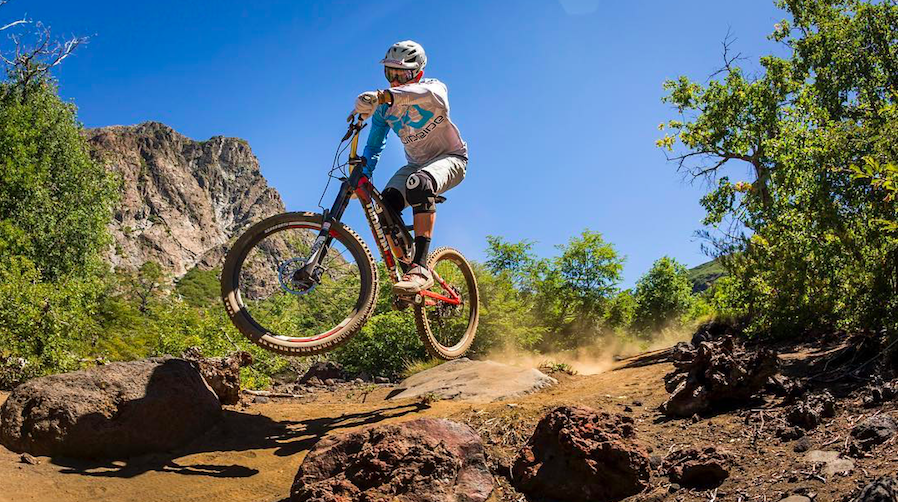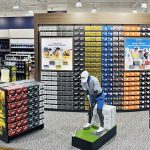Accell Group N.V , the parent of Raleigh and Diamondback, reported sales declined 21.9 percent to €57 million ($66.4 mm) from €73 million.
The decline was due in part of the sale in April 2016 of Seattle Bike Supply, its parts & accessories activities in the region, to Hawley-Lambert.
But the decline also reflected continued adjustments to its distribution strategy in North America that began in 2016, including a greater emphasis on online sales, and the exit of stores, including The Sports Authority and Sport Chalet. Accell said that in the first half of 2017, the U.S. bicycle market saw a drop in the sales of bikes via the specialist retail trade.
“In North America due to a deterioration in the retail market, sales to multi-sports chains in the first half of the year were disappointing,” said Hielke Sybesma, interim-chairman of the board of directors, in a statement. “Our sales via other (online) channels in North America are increasing as a result of the changes in distribution strategy for our brands Raleigh and Diamondback.”
Companywide, revenues inched up 0.7 percent in the first half to €634.0 million ($738.6 mm). Adjusted for the sale of the parts & accessories operations in North America in 2016, organic growth was 1.6 percent. Currency exchange effects had a negative impact of 1 percent on sales.
Net profit declined 22.7 percent to €26.3 million ($30.6 mm) from €34.0 million. Earnings were lower due to the negative impact of a one-off non-cash write down of €3.8 million on a tax asset related to the North American operations.
Operating profits declined 9.3 percent to €47.5 million ($55.3 mm) largely due to the lower added value and as a result of the extra costs related to the implementation of a new strategy announced in March.
Gross margins came in at 28.9 percent, down from 30.3 percent a year ago, in large part due to the increase in the contribution from e-bikes and reduced margins on regular bikes.
Operating costs fell 2.1 percent to €135.7 million (158.1 mm) due to lower sales. As a percent of sales, operating costs were 21.4 percent against 22.0 percent in the same period a year ago. Operating costs include around €5 million ($5.8 mm) in exceptional expenses related to the implementation of the new “refined strategy.” These costs are related to the strengthening of the group organization, IT projects and consultancy fees.
“We are making good progress on the various strategic fronts and we are laying the foundations that will help us achieve our medium-term goals,” said Sybesma. “We are booking particularly solid progress in the fields of supply chain, parts & accessories, portfolio management and IT. The Supply Chain Management organization is currently in full swing. A clear effect of this is that the working capital situation continues to improve. However, the costs incurred for the implementation of the strategy are exerting additional pressure on our results.”
In the Bicycles segment, revenues reached €491.4 million ($572.5 mm), inching up 0.2 percent. Operating earnings dipped 2.6 percent to €48.3 million ($56.3 mm).
Said Sybesma, “We once again benefitted from our leading position in the field of e-bikes in the past six months. We noted a particularly strong increase in sales of e-performance bikes for active recreation and sports and these now represent about 40 percent of our turnover in e-bikes. Turnover in regular bikes lagged expectations in various countries, in which mainly conditions in North America, the Netherlands and Turkey played a role.”
In Germany and other neighboring countries, higher sales in e-bikes were recorded. Sales of sports eMTBs from the Haibike, Ghost and Lapierre brands recorded particularly strong growth. Boosted by a stronger focus on the sales of more expensive and high-quality e-bikes, the number of bikes sold came in at 753,000 in the first half of 2017. The shift in the sales mix and reduced lower margins on regular bikes impacted the segment’s earnings.
In the Parts & Accessories segment, sales rose 2.2 percent to €142.6 million ($166.1 mm). Operating profits climbed 33.3 percent to €11.0 million ($12.8 mm). The growth was again led by Accell’s own brand XLC in Europe. Said Sybesma, “Parts & accessories turnover came in higher, partly due in part to greater demand for replacement parts for e-bikes.”
In other regions, sales in Germany grew 19.4 percent to €191 million ($222.5 mm) due to the higher sales of e-MTBs from Haibike and Ghost that offset lower regular bike sales. Sales in the Rest of Europe expanded 4.2 percent to €248 million ($288.9 mm), also led by e-MTBs. Sales declined 30.4 percent to €16 million ($18.6 mm) in Other Countries largely as a result of the economic situation in Turkey.
Looking ahead, sales in the second half are expected to increase compared to the same period last year and the underlying operating result at around the same level as the second half of 2016 (€16 million).
On July 28, Accell said it intended to appoint Ton Anbeek as CEO and chairman o as of November, 1 2017. Anbeek is currently CEO of Beter Bed Holding N.V. On February 9, 2017, Accell announced the departure of René Takens as CEO and chairman of the board of directors, effective April 25.
Photo courtesy Diamondback
















